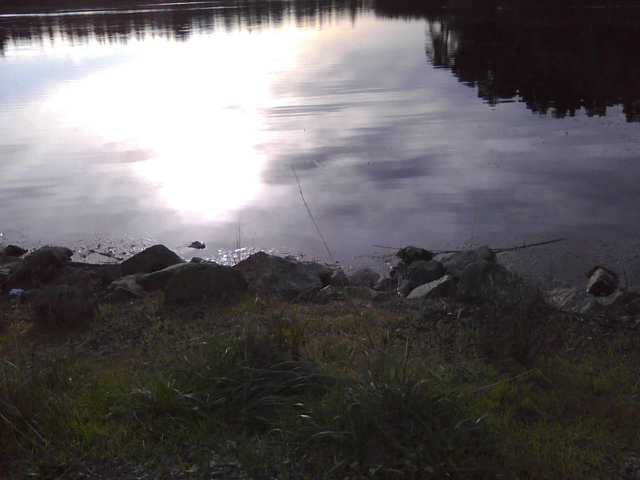What do retirees do all day?
I'll tell you about my morning so far. It is 9:30 am here on the West Coast of the USA, sunny and about 60F. I've been up for hours.
Three a.m or first light: Cat calls to go out.
Fifteen minutes later-cat continues to call. Irritated and sleepy, I keep one eye closed as I walk to the next room to open a window for her to crawl out of.
Four or so-cat is back in and plops down next to my pillow, trying to lick my hand. I tap the bed to indicate that she needs to lie down and do as I do, sleep. She does!!! And I take a few extra winks.
Five-cat is up again and meows to have her bowl and litter box freshened up.
Five-fifteen-I'm up, to the bathroom, void, take my pills, brush my teeth, drag myself to the kitchen and after I tend to cat's food dish and litter bowl, I make coffee.
Back in bed with trays of food and hot coffee, I set my three pillows up to watch the dawn wake birds and seagulls on the dunes. I can sit up like this and enjoy a cup of coffee and an egg on toast for as long as I want. Sometimes I see people walking the beach while it's barely light out there. Often, I see fishing boats returning to port, or lulling around pulling up crab traps.
Seven- Computer time; check emails; check Facebook; check blogs.
Eight- Hubby begins to stir back in the bedroom, and I join him with a fresh cup of coffee. He too sits up to eat, and we chat about everything the world must do to get its act together. This morning, we discussed how our bacteria changed our evolution, a full half hour of evolutionary biology lecture free to those near enough to hear and appreciate all that jazz. My contribution? Why didn't that happen to other species? I got another lecture that was interrupted by another cat need. I know, she saves me at the right time!
Nine-Gardening or house chores until I'm too tired and worn out to stand and return to my computer as Hubby goes through his routines and ends up at his computer in the same room.
Nine-thirty: Serious writing time for me and for my husband until lunch time, unless we have scheduled doctors' visits or runs to pharmacy,drug stores, groceries. Since these are all out of town, we anticipate that lunch will be eaten out and that our morning or afternoon walks can be accommodated one way or another in this time frame. We park as far away as possible, and walk to the stores. We walk the beaches, the river, the parks available around our errands. We try to challenge ourselves this way and maintain our physical abilities. If we leave town, we may not return until late afternoon or early evening. This happens more often that we try to admit. Most of our doctors are specialists, three hours away, for which occasion we need to make arrangements to stay overnight, and to have someone care for the cat and the house.
Noon-two- Lunch is usually our big meal, and it consists of a salad, cooked veggies and a protein. After lunch, television is turned on and we watch old movies or series we have recorded and nap to our hearts' content.
Two-five-Volunteer activities. We may have to switch our appointment times sometimes, but having a place to be in the afternoons adds interest and challenges to our schedules. I run the Arts Council, teach a couple of writing workshops, sit on the School Board, perform at an open mike cafe once a week, and meet with writing and reading groups regularly.
I had not done any of these activities before I retired.
Five- Dinner and news.Dinner is a soup, or salad, a half a sandwich and fruit. Many times, I cook extra food for lunch. If a neighbor has no plans for dinner, they join us. I love to have impromptu get together.
Six-nine- Television, necessary chores, more computer time.
Nine- Bed time.


































.jpg)








